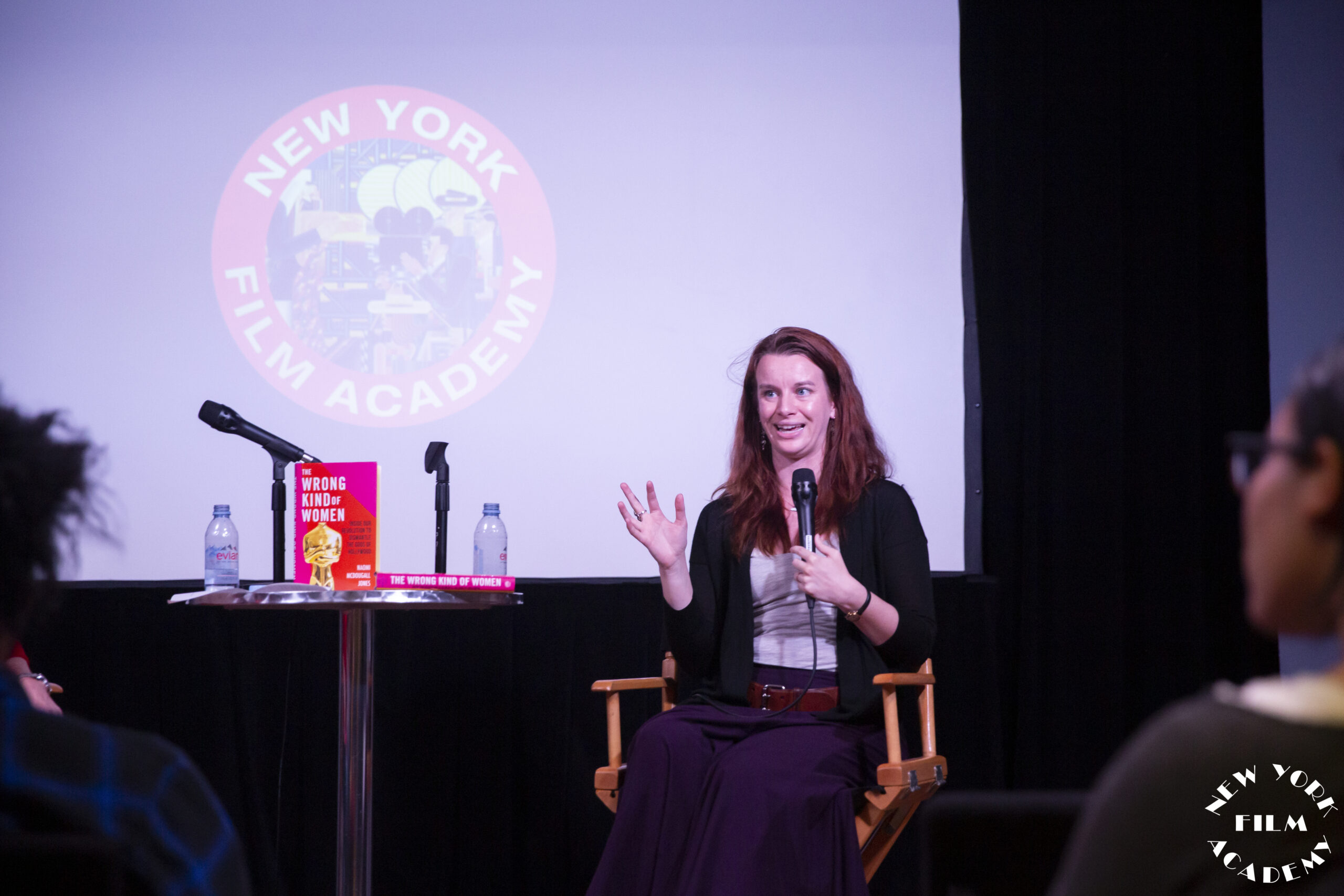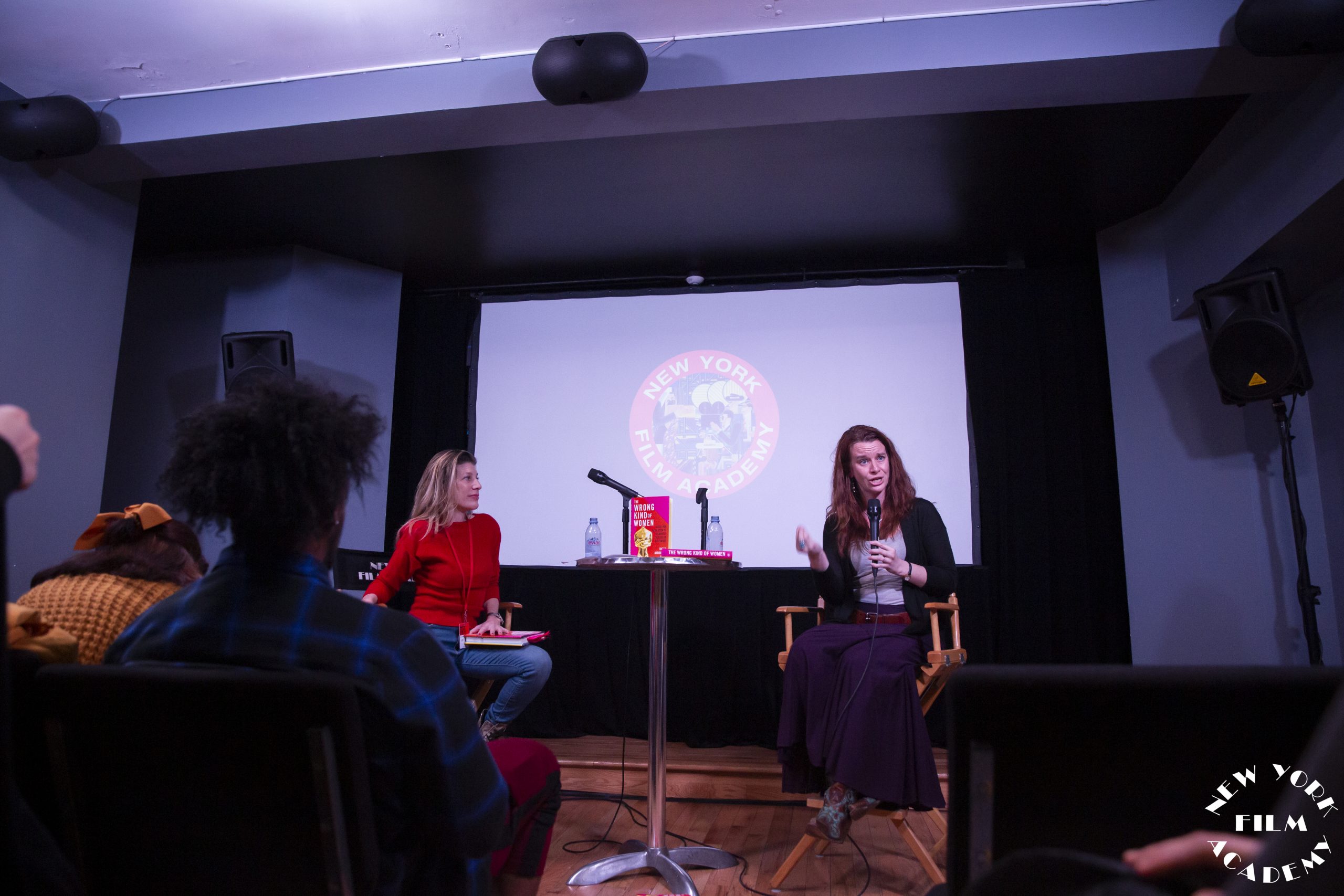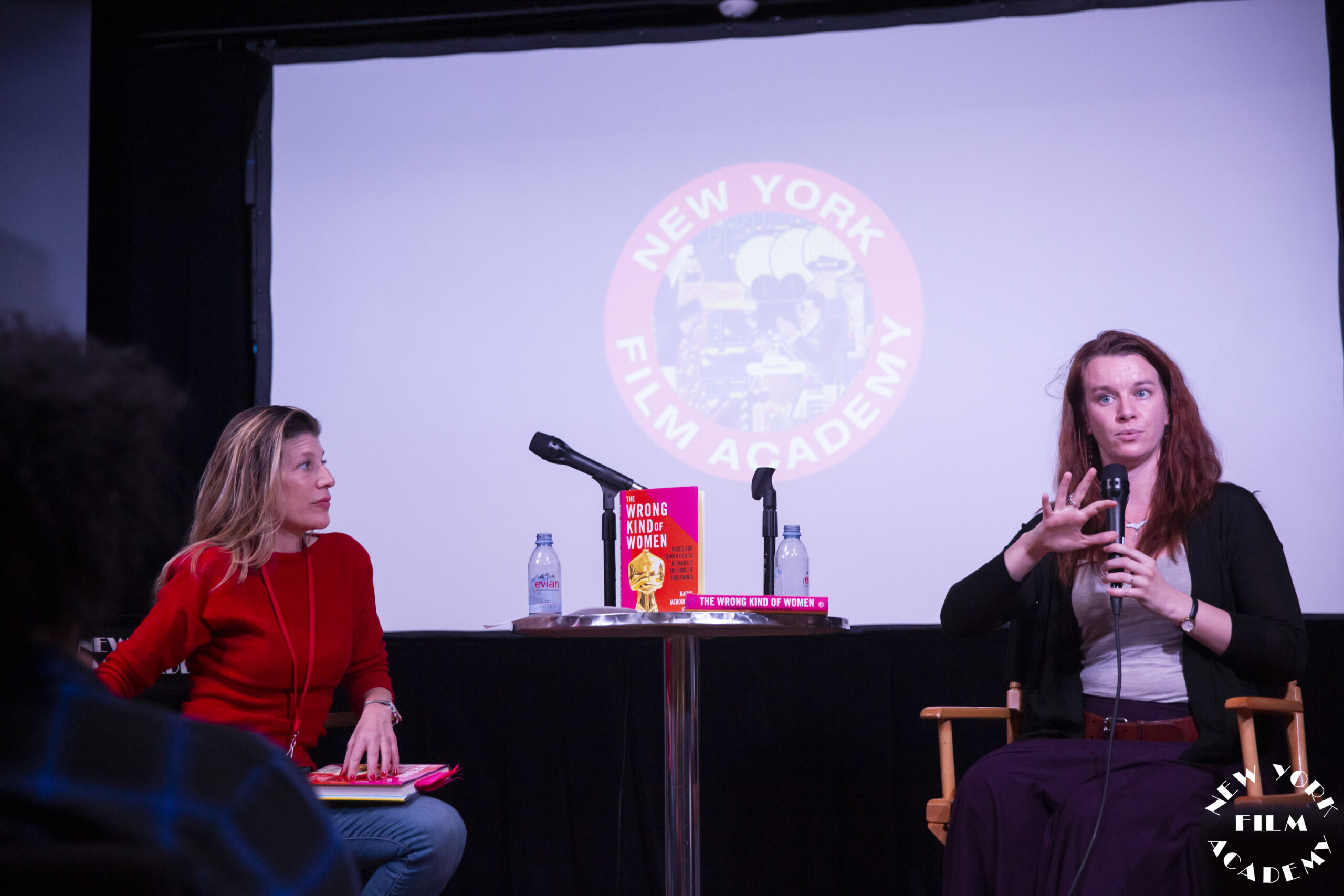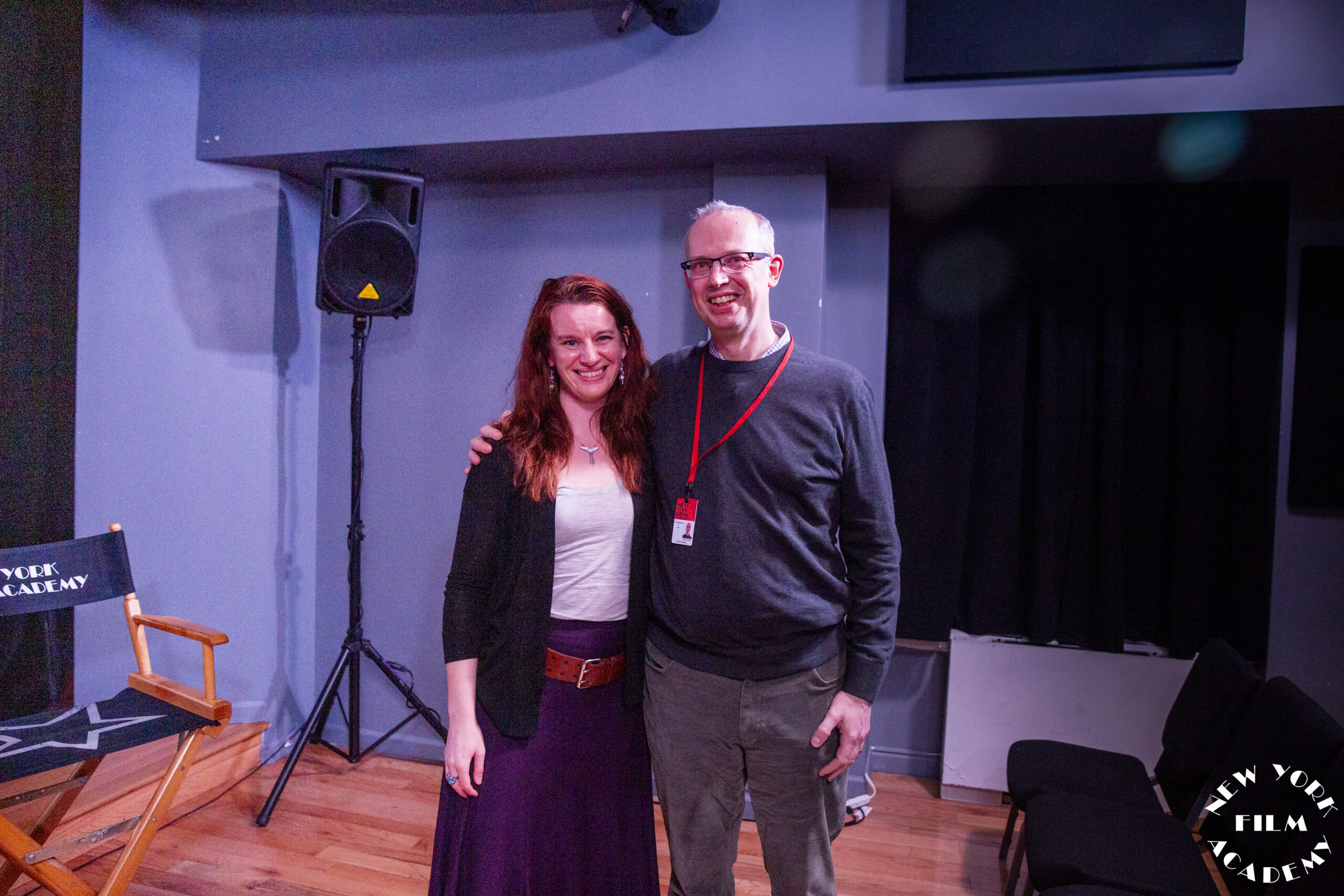On March 3, the Cinematography Department at New York Film Academy’s (NYFA) New York campus was extremely excited to welcome Naomi McDougall Jones to kick off the celebration of Women’s History Month with a frank and remarkable conversation on the condition of Women in Cinema, Television and the Entertainment Industry at large.
Naomi McDougall Jones is a talented actress turned screenwriter. Out of the necessity of writing characters and stories more in line with the female perspective, she began to explore that longing, which was hard to find in an industry dominated by the male approach. With the realization that the issue was bigger than simply finding the energy and commitment to write such stories, she became an activist initially with her viral Ted Talk and subsequently published her book The Wrong Kind of Women – Inside Our Revolution to Dismantle the God of Hollywood.

Jones recently brought her wisdom and years of deeply documented research to a room full of NYFA’s very own community of filmmakers, actors, producers and many others involved in the industry. One of her first points, looking at the room and the people that came to the presentation, was how, when looking exclusively at film schools around the country, one would assume the problem of representation for female filmmakers doesn’t exist. Female filmmakers, in this definition, meaning the whole group in front of and behind the camera. Female filmmakers consist of slightly more than 50% of the population of today’s cinema educational world, but after analyzing the data, there is a deep discrepancy between the rich, diverse crowd who graduate from colleges and film schools around the globe versus the space that women actually fill in the industry itself.
The exhaustive research conducted by Jones for the publication of her book present numbers that are deeply troubling as they show that women represent only a minimal part of the directors hired by producers. These numbers show slightly better in television, however, but in context, this is due to the fact that the main professional figure of a TV show is not necessarily the director, but the show runner, which tends to lean overwhelmingly male.
Jones proceeded to explain, in detail, the principal obstacles filmmakers encounter in their quest to break into an industry that seems designed to keep them at bay, all the while white male privilege continues to prevail in the industry. Jones recalled experiencing this firsthand when getting her first feature length film made. The film, Imagine I’m Beautiful, was created out of her motivation for creating a female-driven story. As a female screenwriter and producer with a solid project in her hands, she thought it would have been at least possible to gather enough support within the industry to find a way to produce the movie. She was, unfortunately, wrong.

The reality of her situation kicked in faster than she thought and she found herself and her team of female creatives in a limbo, where the already complex process of financing and producing her first feature turned out to be exhaustingly more difficult due to the people in charge of the industry, the so called “Gatekeepers.”
The lesson she learned at that time was difficult to swallow, but refreshing, as it taught her not to doubt her own talent, but instead focus on the lesson involved. Like so many women before her not having the space or voice they deserved, she began to understand the true nature of the problem. Hollywood is a system based on an “inside” and “outside” structure, similar to a high school cafeteria, where you have options for where you’d like to sit, but can only sit at the table where you are allowed to sit. It’s a system where you immediately know who the “cool people” are- those that are admired, watched and followed by the generic population.
In Hollywood, the “inside” world is dominated by cis white males and, for an extremely long period of time, their judgment, support, and approval has been the only way to cross the room and take a seat at “the table.” Fear of being quickly thrown “outside” and losing your spot in the “golden” and “glamorous” world of Hollywood has often pushed aside anyone willing to disrupt the status quo and change the modus operandi of the system.
As a result, the movie-going audience has been so accustomed to viewing stories from a male perspective that the risk of pushing for a different one can cause people to be expelled from their seat at “the table” or, rather, pushed to the “outside.” At the same time, the fear of failure has reduced, if not blocked, the possibilities for women to break into the “inside” crowd.

It is an extremely complex topic, which Jones synthesized and captured in front of NYFA faculty, students, and guests in a well attended and even better discussed event. The questions from the audience went from “what can male allies do to help change the system” to “how film schools can better support their female students to allow them better opportunities for success.” Jones left a profound mark on those willing to listen, opening their eyes to what has been her experience and, along with her, the experiences of thousands of women before and after her.
Jones also ended the discussion with several reasons to be hopeful. While none of the principal publications in the industry (Variety, Hollywood Reporter, etc.) have dedicated a single line to her book, it has been the subject of several important discussions and articles on several platforms from NPR to the BBC, the Washington Post and even Playboy Magazine. Jones even mentioned that one of the largest corporations and producing entities in the world of television has made her book a required reading for their original content writers.
The main takeaway of Jones’ presentation has been the necessity for women and minorities to “never let the system tell you your values” and she pushed the students to trust their artistic talent, dare to be radical, and to not sell themselves short, while always finding new ways to push into a deeply troubled industry.

New York Film Academy thanks Naomi McDougall Jones for celebrating the launch of her new book and for discussing the important topic of jobs for women in film with our NYFA students, faculty and guests for Women’s History Month.
Her book is available for purchase online and can also be found at NYFA’s New York campus library.